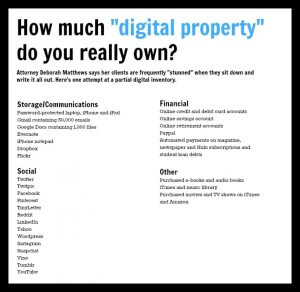 Facebook has just announced that it will now allow its users to ‘will’ their pages to another person upon death. With 1.39 billion users, three Facebook users die every minute.
Facebook has just announced that it will now allow its users to ‘will’ their pages to another person upon death. With 1.39 billion users, three Facebook users die every minute.
Using a feature called a “legacy contact“, you can nominate a person to control certain aspects of your page once you die. You can also ask Facebook to permanently close down your page once they’ve been notified of your death.
What can your legacy contact access?
They can make posts, accept friend requests and change your profile picture. They can’t access your private messages. Nor can they delete the page or remove pictures with you tagged in them. But at least now you have some choice in what happens to your Facebook page when you die. Previously, Facebook simply froze your page, angering loved ones who had wanted to edit the deceased’s online presence.
Why does it matter?
No longer do we have paper diaries, physical photos or keepsakes hidden under the bed. Much of our lives are now conducted in the online environment and this raises questions when it comes to thinking what will happen when you die.
- Who will have access to your emails?
- What about online bank accounts? Who has access to these?
- What do you want to happen to your blog or website?
- What about photos you’ve stored on the cloud?
- What about bills that are emailed to you now instead of being posted?
- How do you protect your online privacy after your death?
- The information kept in email folders or private message providers are governed by the terms and conditions of those providers. In other words, they may not be as private as you think once you die.
- Do you have a business with an online presence?
- How many online profiles do you have? Facebook, Twitter, LinkedIn, Pinterest, Google, YouTube, Flickr, Tumblr are just some of the most common sites where your digital self will need to be deleted or edited.

A law professor at George Washington University, Naomi Cahn, says that most people have 20 – 25 digital accounts, most of which are inaccessible by family members or or friends upon death. Cahn is trying to implement nationally consistent digital asset laws in the USA where the last digital privacy laws were crafted in 1986 – well before the advent of social media or the Internet.
If nothing else, this topic should highlight the necessity of having thorough wills drafted by an expert in wills and succession planning. They will be able to ensure things you haven’t thought of are covered. If you would like peace of mind, contact us today!
